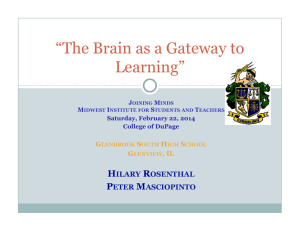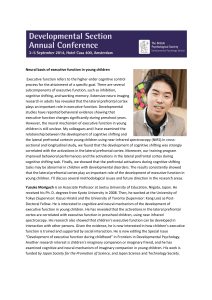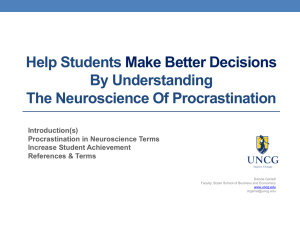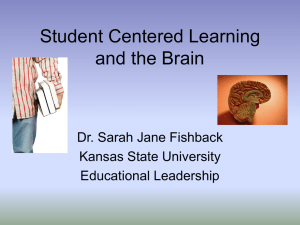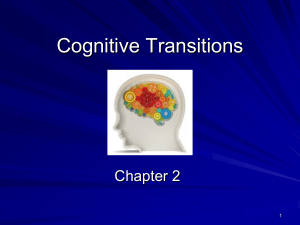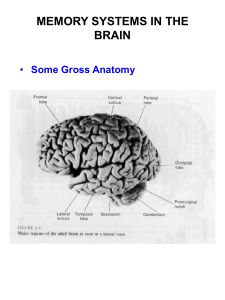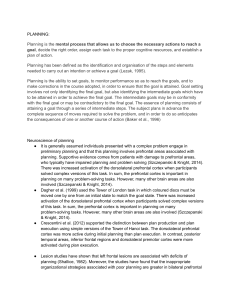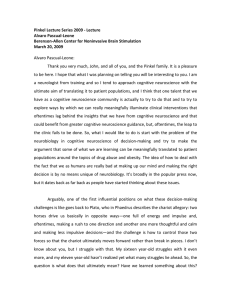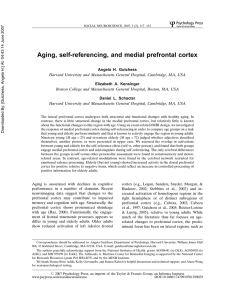Adele Diamond, Ph.D.
advertisement
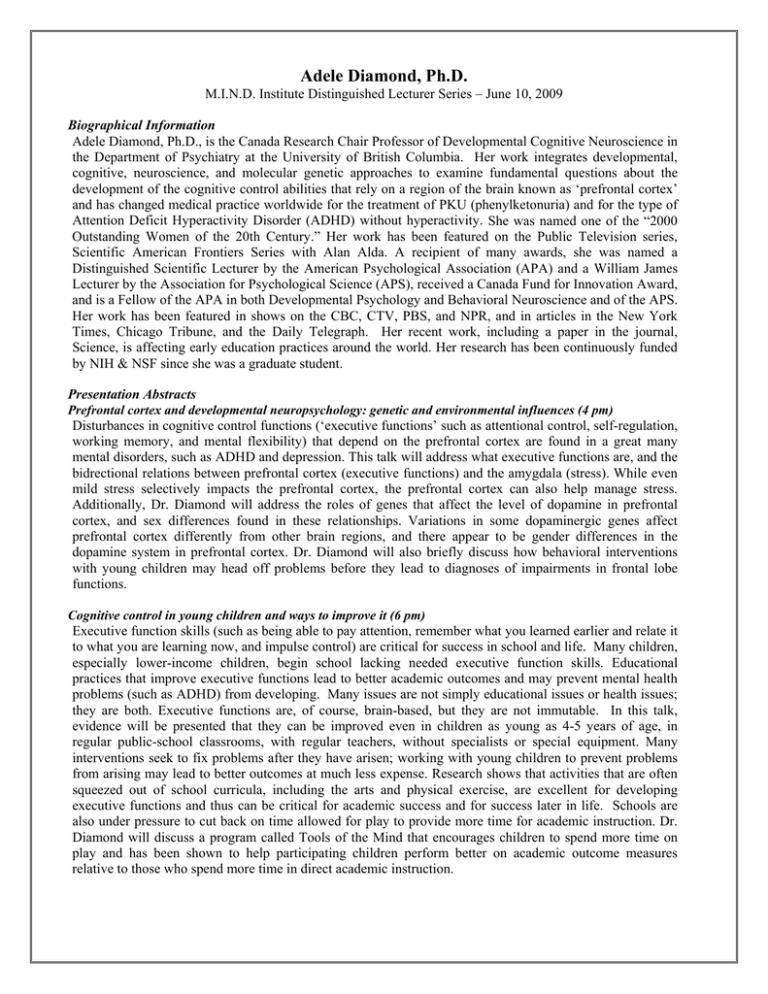
Adele Diamond, Ph.D. M.I.N.D. Institute Distinguished Lecturer Series – June 10, 2009 Biographical Information Adele Diamond, Ph.D., is the Canada Research Chair Professor of Developmental Cognitive Neuroscience in the Department of Psychiatry at the University of British Columbia. Her work integrates developmental, cognitive, neuroscience, and molecular genetic approaches to examine fundamental questions about the development of the cognitive control abilities that rely on a region of the brain known as ‘prefrontal cortex’ and has changed medical practice worldwide for the treatment of PKU (phenylketonuria) and for the type of Attention Deficit Hyperactivity Disorder (ADHD) without hyperactivity. She was named one of the “2000 Outstanding Women of the 20th Century.” Her work has been featured on the Public Television series, Scientific American Frontiers Series with Alan Alda. A recipient of many awards, she was named a Distinguished Scientific Lecturer by the American Psychological Association (APA) and a William James Lecturer by the Association for Psychological Science (APS), received a Canada Fund for Innovation Award, and is a Fellow of the APA in both Developmental Psychology and Behavioral Neuroscience and of the APS. Her work has been featured in shows on the CBC, CTV, PBS, and NPR, and in articles in the New York Times, Chicago Tribune, and the Daily Telegraph. Her recent work, including a paper in the journal, Science, is affecting early education practices around the world. Her research has been continuously funded by NIH & NSF since she was a graduate student. Presentation Abstracts Prefrontal cortex and developmental neuropsychology: genetic and environmental influences (4 pm) Disturbances in cognitive control functions (‘executive functions’ such as attentional control, self-regulation, working memory, and mental flexibility) that depend on the prefrontal cortex are found in a great many mental disorders, such as ADHD and depression. This talk will address what executive functions are, and the bidrectional relations between prefrontal cortex (executive functions) and the amygdala (stress). While even mild stress selectively impacts the prefrontal cortex, the prefrontal cortex can also help manage stress. Additionally, Dr. Diamond will address the roles of genes that affect the level of dopamine in prefrontal cortex, and sex differences found in these relationships. Variations in some dopaminergic genes affect prefrontal cortex differently from other brain regions, and there appear to be gender differences in the dopamine system in prefrontal cortex. Dr. Diamond will also briefly discuss how behavioral interventions with young children may head off problems before they lead to diagnoses of impairments in frontal lobe functions. Cognitive control in young children and ways to improve it (6 pm) Executive function skills (such as being able to pay attention, remember what you learned earlier and relate it to what you are learning now, and impulse control) are critical for success in school and life. Many children, especially lower-income children, begin school lacking needed executive function skills. Educational practices that improve executive functions lead to better academic outcomes and may prevent mental health problems (such as ADHD) from developing. Many issues are not simply educational issues or health issues; they are both. Executive functions are, of course, brain-based, but they are not immutable. In this talk, evidence will be presented that they can be improved even in children as young as 4-5 years of age, in regular public-school classrooms, with regular teachers, without specialists or special equipment. Many interventions seek to fix problems after they have arisen; working with young children to prevent problems from arising may lead to better outcomes at much less expense. Research shows that activities that are often squeezed out of school curricula, including the arts and physical exercise, are excellent for developing executive functions and thus can be critical for academic success and for success later in life. Schools are also under pressure to cut back on time allowed for play to provide more time for academic instruction. Dr. Diamond will discuss a program called Tools of the Mind that encourages children to spend more time on play and has been shown to help participating children perform better on academic outcome measures relative to those who spend more time in direct academic instruction.

